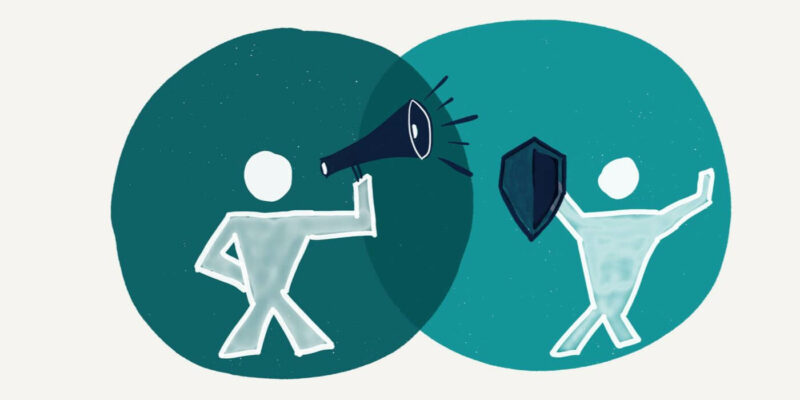I work with a lot of perfectionists in my coaching practice. And maybe the single most important thing I’ve learned is this:
It’s unwise to try and fix perfectionism before you understand what it is or what role it plays in your life.
Which is why I almost always assign a journaling exercise as homework. And that exercise usually involves a set of questions designed to get them thinking carefully about their experience of perfectionism and how it operates.
In the rest of this article, I’ll share seven of my favorite perfectionism journaling prompts along with a handful of supplemental questions for each.
IMPORTANT! Please resist the urge to simply read through these quickly and “get back to it” later. Instead, commit to spending five minutes RIGHT NOW actually thinking through and writing down your thoughts to at least one of the seven prompts now. Then you can revisit additional prompts on a daily or perhaps weekly basis.
1. What is perfectionism?
Perfectionism is a big word that people use in all sorts of ways to mean all sorts of things. So the first step is to get clarity about what exactly perfectionism is to you. Because the clearer you are about what it is, the easier it will be to navigate it well.
Main Prompt
- How would you define perfectionism in one sentence or less?
Additional Reflection Questions
- What type of thing is perfectionism, exactly—an emotion, belief, trait, behavior, habit, condition, diagnosis?
- Is perfectionism a verb or a noun, something I do or something I have?
- What’s the opposite of perfectionism?
2. How does perfectionism hurt me?
While uncomfortable, getting clear on the costs of perfectionism is important if you’re serious about making a change.
Main Prompt
- In what ways does perfectionism hurt or hinder me?
Additional Reflection Questions
- In what part of my life does perfectionism most strongly exert a negative effect: Emotionally? Relationally? Physically? Professionally? Creatively? Spiritually?
- In what ways is my perfectionism a crutch or excuse?
- What is perfectionism holding me back from?
3. How does my perfectionism impact others?
No matter how much it can feel like a “silent burden,” our perfectionism always impacts other people—often far more than we realize. Coming to terms with this is almost always a prerequisite for meaningful change.
Main Prompt
- What effects does my perfectionism have on important people in my life?
Additional Reflection Questions
- If I was less perfectionistic, who in my life would be happier for it?
- Who’s someone I admire for their ability to achieve without falling into perfectionism?
- Who in my life is learning from my perfectionism—and what lessons are they learning?
4. What are my perfectionism triggers?
The better you understand the conditions under which perfectionism thrives the easier it will be to prepare for it and manage it well.
Main Prompt
- Under what circumstances does my perfectionism become most intense?
Additional Reflection Questions
- What external factors are most likely to trigger my perfectionism—people, places, events, occasions, etc.?
- What internal factors are most likely to trigger my perfectionism—emotions, moods, thoughts, physical feelings?
- Is perfectionism something that happens to me or something I do to myself?
5. What does my perfectionism trigger?
While many things can trigger perfectionism, perfectionism itself can be a trigger for other thoughts, behaviors, and impulses. And often, understanding perfectionism’s effects is just as important as its causes.
Main Prompt
- What are my typical responses to perfectionism?
Additional Reflection Questions
- If a close friend saw me in a state of heightened perfectionism, what would they observe?
- How do I feel in my body when perfectionism is high?
- What mental habits does perfectionism trigger in me?
6. What job is perfectionism doing for me?
If perfectionism sticks around it’s because on some level it’s functional—it’s doing something for you. And working through perfectionism almost always means understanding what those functions are.
Main Prompt
- In what ways does perfectionism help or benefit me?
Additional Reflection Questions
- In what part of my life does perfectionism help me most—Emotionally? Relationally? Physically? Professionally? Creatively? Spiritually?
- Is perfectionism necessary for success and doing great work?
- What psychological needs does perfectionism fill in me?
7. What would put perfectionism out of a job?
To whatever extent you wish to be less perfectionistic or reduce the negative consequences of perfectionism in your life, it almost certainly involves identifying and pursuing healthier ways to achieve the same benefits perfectionism delivers.
Main Prompt
- What new habits or behaviors would make perfectionism unnecessary or irrelevant?
Additional Reflection Questions
- What would it look like to be 25% less perfectionistic?
- What behaviors are incompatible with perfectionism?
- If perfectionism plays too large a role in my identity, which part of my identity should play a larger role?
Next Steps
If you’re interested in learning more, here are a few resources from me that might help:
- 7 Signs You’re an Anxious High-Achiever
- How to Overcome Fear of Failure
- Agency Blockers: 3 Limiting Beliefs Keeping You Stuck
Also, there’s a wonderful book about perfectionism I recommend called Meditations for Mortals by Oliver Burkeman. I also interviewed Oliver about the book on my podcast.
Work with Nick
If you’re interested in working with me directly, I offer a couple options:
- Twice a year, I lead a 4-week emotional resilience masterclass called Mood Mastery.
- I also maintain a small mindset coaching practice where I work individually with anxious high-achievers who want to overcome inner obstacles to success and fulfillment.




